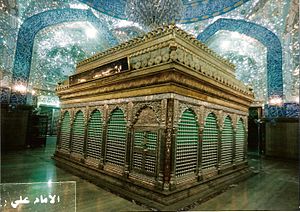In book
Missional Renaissance,
Reggie McNeal contrasts the approaches taken by the postmodern "missional" Christians to those taken by the "traditional" church models of as recently as the
megachurches and "seeker-friendly" churches of the 1990s.
In the book, McNeal points out that a
missional church is not about providing religious commodity and products to the marketplace and thereby attracting consumers to become "assimilated" into a church and its own insular "Christian"
subculture, but rather going out to a real world to be a blessing. In the course of becoming a missional church, McNeal argues, that a church must become simplified, less institutionalized and less internally-focused, and rather ask itself how it can become a blessing to the communities out there, not just their own people and not just "Christians" who agree with them.
A missional approach places far less emphasis on doctrinal orthodoxy -- or for that matter, orthopraxy. Much of what an "incarnational" (as McNeal calls this missional movement) church does is not about "proclamation, but demonstration."
Even more interesting is that this approach engages "non-Christians" in a way no conventional church ever has. After all, most of what a missional church does to bless the world around it have a universal appeal.
Thinking of it, in retrospect, I feel that this group -- now called the
Interfaith Solidarity, formerly the Interfaith Guild of Chaplains -- has also been stuck in the old paradigm even amidst the new paradigm prefigured in the Occupy movement. In our early days we were just as obsessed with programming and attracting people to
our events as the conventional churches and
parachurch organizations are. We atrophied as soon as the memory of the Occupation faded into history, just like conventional churches are often impotent and incompetent outside their walls and their constructed "Christian" subculture.
This was not what we envisioned or see it coming.
Maybe we need to start asking ourselves how we can start blessing the community -- and by community it is not just Occupy people. How many Occupiers have thus far gone out to be a blessing to the wider community, aside from endless marching and protesting? Maybe the Occupy movement will once again rise if Occupiers started serving the community and its most marginalized segments -- instead of being known mostly for disrupting commuter rush-hour traffic, for being beaten up by cops, and for
property destruction?
On that note, I propose that we think of ways to bless Portland in a tangible way this month of September as we celebrate the first anniversary of
Occupy Wall Street. This can be a series of projects that can engage many Occupiers outside the Interfaith Solidarity as well.
And importantly, you can be an atheist, a Buddhist, a Jew, a Muslim, or anything else for that matter -- to be a blessing.
Sarah Morrigan
Interfaith Solidarity


